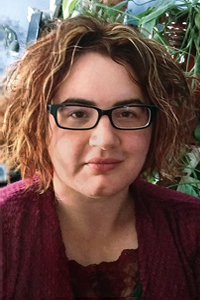Kameron Hurley: The Privilege to Publish; the Power to Persevere
There are two very broad schools of thought when it comes to teaching new writers the ropes: one is the kinder, gentler ‘‘you’re a special, beautiful snowflake of win’’ school of teaching. Writing and publishing are difficult enough, the thought goes; exercises in bruised ego and disappointment. Why discourage so many up front when plenty will be discouraged later? We should nurture every tender new talent. They will be squashed soon enough, right?
The other track says: grind them down early. Be blisteringly honest. Dissuade them. Those who can be dissuaded early, this school of thought says, will be the first to fall when things get difficult. Why not give them a dose of reality up front, to weed them out before they go too far down a path that will only break their hearts?
What we don’t question is the business itself, and how we can transform it into one that celebrates and rewards a diversity of voices, instead of holding up the same dreary talent from the same dreary segments of the same dreary places year after year.
We don’t discuss the relative privilege of those we teach, of those who pursue writing, and how their success depends less on talent and more on the safety net they have in place and the raw grit they have to persevere in the face of continual rejection and failure. A novel advance doesn’t have to pay the bills if you have a trust fund, a well-paid spouse, ample savings from a prior job, or a family willing to support you while you plunk away in the apartment above the garage. The extraordinary low pay for entry level and even mid-career writers isn’t sustainable for many of us. You can’t eat on most book advances these days. If you’re lucky, you can buy a used car with one: a used car with 200,000 miles on it (which I did indeed do with a book advance not long ago).
Outside of the fiction and content-mill freelancing world, corporate copywriting pays far better, even if you manage more failures than successes. Marketing and advertising work holds value because it makes profit-driven companies a profound amount of money that’s easily tracked back to their efforts. Corporations recognize the power of words to drive people to action. Words and images have gotten people to wear deodorant daily, brush their teeth regularly, smoke cigarettes that kill them, wear seatbelts, and consume far too much of… well, just about everything. Hollywood writers, too, can demand higher rates, but that’s largely due to their efforts at organizing, not because production studios and investors are eager to have them know how much a good story is worth (hint: a lot; much more than many are getting paid, even now).
What keeps the rates for general fiction and online content mills low is that so many of us are so desperate for work, and so alone in the process of creating it, that we’re happy to write for traffic, for exposure, for a contributor’s copy, while the dragon that eats us plays in her pile of money – whether it’s a puddle or a mountain of it. Content drives the world. Stories inspire us to action. Stories tell us who we are, who we should be; they paint a picture of the future. We all know their inherent power. So why don’t we demand their real worth?
Sometimes I think it’s because the only ones of us left in this business are the writers with safety nets. The writers who have another way to eat, and have the privilege, yes, privilege, of persevering even in the face of constant rejection. I’ve been aware at every turn that I had advantages others didn’t: middle-class parents who didn’t insist I get a real career. A grandfather who paid for graduate school in a cheap foreign country. No children of my own, or parents or siblings I had to care for. Medical debt, yes, but not enough to bankrupt me. For every hardship I encountered, the reality is that I’m sitting here writing a column for a venue that a limited number of folks will ever write for.
That may not feel like much, but there are better writers than me. Smarter writers. I bought into the myth of talent, myself, when I was first starting out. But as I watched other writers fall by the wayside, I realized how complicated success truly was. I saw people quit due to medical disasters. I saw people quit because they had children. People who quit because their spouse or partner did not support them. I saw people quit because they could not justify a ‘‘hobby’’ that took up so much time and brought in so little income. Most often, though, I saw people quit because they simply lost hope. They did not have the confidence. They understood the odds, and accepted them.
Watching other writers fall made me wonder why people didn’t quit. Privilege helped: all of the advantages mentioned previously. Of those who were able to write at all, there were some who wrote a hit the first time out, neatly avoiding the worst of the slog to publication, the endless meandering rollercoaster ride toward earning an advance one could actually live on. Some simply loved the act of writing, and ignored the business; they had enough financial security that they didn’t have to be too concerned about the business part. But among everyone I’ve encountered during my decade in the business, what those who stuck with it had in common was a desire to succeed at it that trumped all else, a desire to hang on at the edge of the precipice by their fingertips, if need be, and to sacrifice hobbies, television watching, social vents, other careers, and even relationships to carve out more time to hone their craft. More often than not, they had formed connections with other writers, friendships through workshops or conventions or in virtual social spaces, that gave them the support they needed to survive when their grit ground out.
I wonder if it’s possible to create an art, a business, that’s more welcoming to the talented people we lose during the grind. I wonder if we can be honest about how difficult it is while also being supportive to those who struggle, instead of telling them to suck it up. The profession we’ve chosen is not easy – but nor is becoming a brain surgeon or a nuclear scientist or a marine biologist. We choose, and we work, and we hope we get lucky. We hope that life’s oftentimes tragic circumstances don’t waylay us on the journey there. We are lucky if we start three steps ahead of others, with money in the bank, a supportive family, good health. It costs us nothing, if we’re starting three steps ahead, not only to reach a hand out to help those behind, but to work toward building a world that reduces the distance so many have from the starting line.
I have seen the cultures that ‘‘just suck it up’’ companies build, and they are filled with the same cruel people, the same hungry, selfish faces. I don’t want to build a writing community like that, where only the biggest jerk on the island wins. We do people a disservice by pretending that the game isn’t rigged, and that selfish people don’t get ahead.
Maybe the best road, the best map to hand to someone breaking into the business, is to say, ‘‘Yes, this is hard. It’s full of horrible people, sometimes. You’re going to be rejected, and lonely, and feel great despair and outrage and sorrow. But if you stay here, if you stick with it, you can be part of building a better way through, of busting down a wall, yanking down some barbed wire, or just being the lifeline for a new writer who needs a sympathetic ear before she throws in the towel. If you survive the road that gets you here, you can help build a new road that others can travel more easily.’’
That’s the school of writing I want to teach. The hopeful but pragmatic one, where we’re all in this together, and the best is yet to come.



 From the
From the 


